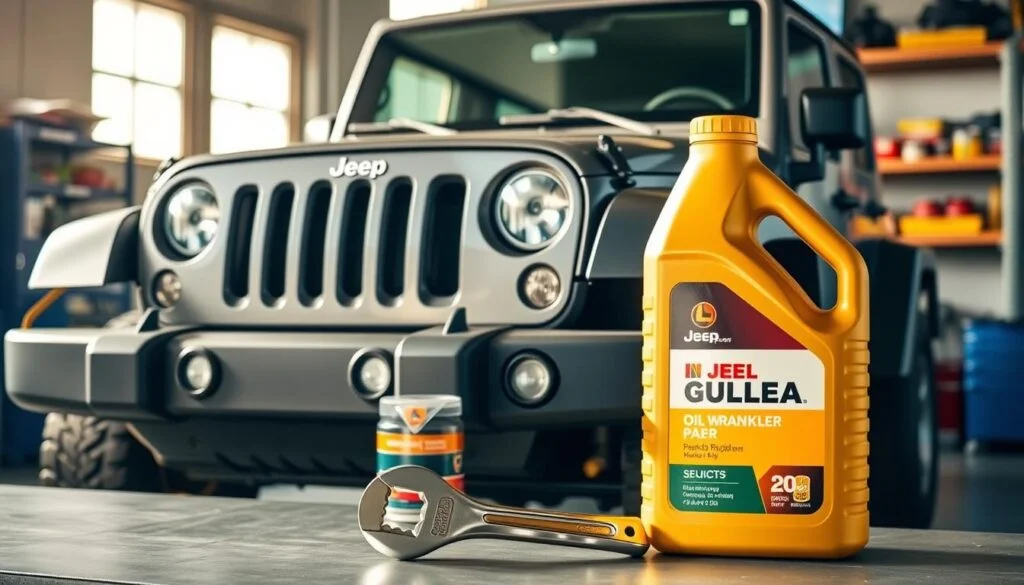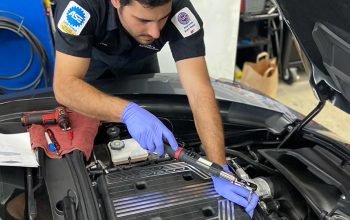Your Jeep Wrangler is built for adventure, but it requires regular maintenance to keep running smoothly. One of the most important aspects of engine care is routine oil changes. Oil serves as the lifeblood of your engine, lubricating its moving parts, reducing friction, and preventing overheating. However, over time, oil breaks down, loses its effectiveness, and can even become contaminated.
Failing to change your oil on time can lead to poor engine performance, reduced fuel efficiency, and even costly repairs. So, how do you know when it’s time for an oil change? Here are six clear signs that your Jeep Wrangler needs fresh oil.
1. The Oil Looks Dark and Dirty
One of the easiest ways to tell if your oil needs changing is by checking its color and consistency. Fresh engine oil is typically a golden or amber color and has a smooth, clean texture. Over time, oil collects dirt, debris, and combustion byproducts, causing it to turn dark brown or black.
How to Check Your Oil:
- Park on a level surface and turn off the engine.
- Pull out the dipstick, wipe it clean, and insert it back into the oil reservoir.
- Remove the dipstick again and inspect the oil’s color and consistency.
- If the oil is thick, sludgy, or dark, it’s time for a change.
Regularly inspecting your oil can help you stay ahead of engine issues before they become major problems.
2. You Hear Increased Engine Noise
Engine oil provides essential lubrication and cushioning for moving parts. When the oil loses its viscosity, metal components begin to rub against each other, creating increased friction.
Signs of Oil-Related Engine Noise:
- Knocking or ticking sounds when starting the engine.
- A louder engine rumble than usual.
- Persistent grinding or rattling noises during acceleration.
If you notice these sounds, it could mean your engine is running on old or low oil, leading to excessive wear. Ignoring this can cause severe engine damage over time.
3. Oil Level is Low
Your Jeep Wrangler’s engine naturally consumes a small amount of oil over time, but a significant drop in oil levels could indicate a leak or excessive oil consumption.
How to Check Your Oil Level:
- Let your engine cool for at least 10 minutes after driving.
- Remove the dipstick, wipe it clean, and reinsert it.
- Pull it out again and check where the oil level falls on the dipstick markings.
- If the oil is below the recommended range, you either need an oil top-off or a complete change.
Running an engine on low oil levels increases the risk of overheating and internal damage, so it’s crucial to address this issue immediately.
4. Your Jeep Wrangler’s Oil Change Light is On
Modern Jeep Wranglers come equipped with an oil change indicator or check engine light that alerts you when it’s time for a fresh oil change. If this light comes on, don’t ignore it.
What This Means:
- The oil pressure is too low due to old or insufficient oil.
- Your Jeep’s onboard computer has detected a need for an oil change based on mileage and driving conditions.
- There could be an oil system issue requiring immediate attention.
Even if the light hasn’t turned on yet, it’s always best to follow your owner’s manual recommendations for routine oil changes.
5. Decreased Fuel Efficiency
Has your Jeep Wrangler’s fuel economy suddenly dropped? Old engine oil loses its ability to reduce friction, making your engine work harder to function properly. As a result, your Jeep consumes more fuel than usual.
Signs of Reduced Fuel Efficiency:
- You’re refueling more often than usual.
- Your Jeep feels less responsive during acceleration.
- You notice a drop in miles per gallon (MPG)
If you’ve noticed a decline in fuel efficiency, scheduling a Jeep oil change service can restore engine efficiency and help you save on gas.
6. Exhaust Smoke or Burnt Oil Smell
Your Jeep Wrangler’s exhaust should be clean and mostly invisible. If you suddenly notice blue or gray smoke, it could indicate that your engine oil is burning due to contamination or breakdown.
Additional Warning Signs:
- A burnt oil smell inside the cabin.
- Excessive white or blue smoke from the exhaust.
- The engine overheating more frequently.
If left unaddressed, burning oil can lead to serious engine damage and costly repairs. Replacing your oil at the first sign of trouble can prevent long-term issues and keep your Jeep running smoothly.
Routine oil changes are one of the simplest yet most important ways to keep your Jeep Wrangler performing at its best. Whether you’re tackling off-road trails or cruising on the highway, clean, fresh oil ensures optimal engine function, better fuel efficiency, and long-term reliability.
If you notice dark oil, engine noise, low levels, warning lights, decreased fuel economy, or smoke, it’s time to schedule a jeep oil change service. Staying proactive with oil maintenance not only extends the life of your engine but also keeps you safe on the road and the trail.
Don’t wait for engine trouble to remind you—check your oil regularly and follow a proper maintenance schedule to keep your Jeep running strong!




